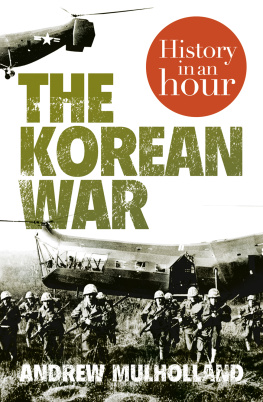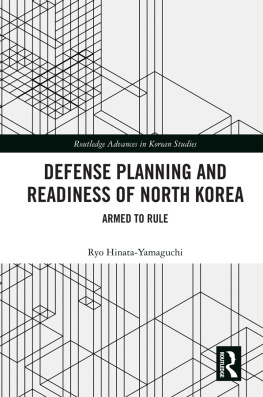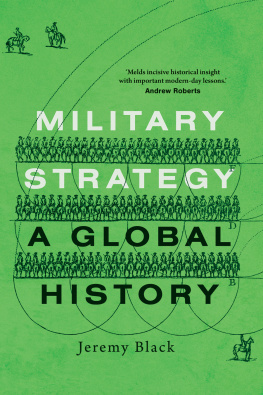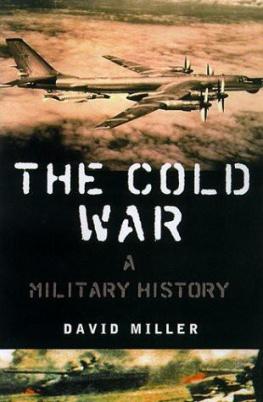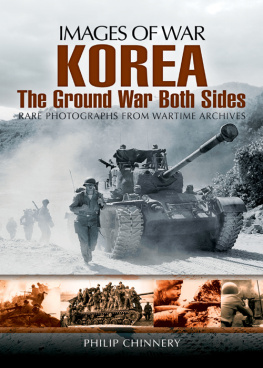BROTHERS AT WAR
SHEILA MIYOSHI JAGER is Associate Professor and Director of the East Asian Studies Program at Oberlin, Ohio where she lives with her husband and children.
Also by Sheila Miyoshi Jager
Ruptured Histories: War, Memory, and the Post-Cold War in Asia
(with Rana Mitter, eds.)
Narratives of Nation-Building in Korea: A Genealogy of Patriotism
BROTHERS AT WAR
The Unending Conflict in Korea
SHEILA MIYOSHI JAGER

First published in Great Britain in 2013 by
PROFILE BOOKS LTD
3A Exmouth House
Pine Street
London EC1R 0JH
www.profilebooks.com
First published in the United States of America in 2013 by
W. W. Norton & Company, Inc.
Copyright Sheila Miyoshi Jager, 2013
10 9 8 7 6 5 4 3 1
Book design by Kristen Bearse
Printed and bound in Great Britain by
Clays, Bungay, Suffolk
The moral right of the author has been asserted.
All rights reserved. Without limiting the rights under copyright reserved above, no part of this publication may be reproduced, stored or introduced into a retrieval system, or transmitted, in any form or by any means (electronic, mechanical, photocopying, recording or otherwise), without the prior written permission of both the copyright owner and the publisher of this book.
A CIP catalogue record for this book is available from the British Library.
ISBN 978 1 84668 067 0
eISBN 978 1 84765 202 7
The paper this book is printed on is certified by the 1996 Forest Stewardship Council A.C. (FSC). It is ancient-forest friendly. The printer holds FSC chain of custody SGS-COC-2061

FOR JIYUL
CONTENTS
ABBREVIATIONS USED IN TEXT
AEC: Atomic Energy Commission
ASPAC: Asia-Pacific Council
CCP: Chinese Communist Party
CPKI: Committee for the Preparation of Korean Independence
CPV: Chinese Peoples Volunteer
DMZ: demilitarized zone
DPRK: Democratic Peoples Republic of Korea
IAEA: International Atomic Energy Agency
ICRC: International Committee for the Red Cross
JCS: Joint Chiefs of Staff
KATUSA: Korean Augmentation to the United States Army
KCIA: Korean Central Intelligence Agency
KCP: Korean Communist Party
KDP: Korean Democratic Party
KMAG: Korean Military Advisory Group
KPG: Korean Provisional Government
KPR: Korean Peoples Republic
KSC: Korean Service Corps
LST: landing ship tank
LWR: light-water reactor
MACV: Military Assistance Command Vietnam
NAM: Nonaligned Movement
NKPA: North Korean Peoples Army
NKWP: North Korean Workers Party
NPT: Nuclear Nonproliferation Treaty
NVA: North Vietnamese Army
PDS: Public Distribution System
PLA: Peoples Liberation Army
POW: prisoner of war
PRC: Peoples Republic of China
ROK: Republic of Korea
SACEUR: Supreme Allied Commander Europe
SCA: Soviet Civil Administration
SCAP: Supreme Commander for the Allied Powers
SKWP: South Korean Workers Party
SOFA: Status of Forces Agreement
TF: Task Force
UNC: United Nations Command
UNRC: United Nations Reception Center
UNCURK: United Nations Commission for the Unification and Rehabilitation of Korea
USAFIK: United States Army Forces in Korea
USAMGIK: United States Military Government in Korea
VPA: Vietnam Peoples Army
WFP: World Food Program
ACKNOWLEDGMENTS
My first opportunity to study the Korean War in depth came in 2006 when I was offered a two-year research fellowship at the U.S. Army War College in Carlisle, Pennsylvania. Affiliated with the War College is the U.S. Army Military History Institute, which houses the largest collection in the United States of oral history archives on the Korean War. One of the major benefits I saw of working with oral histories at the onset of this project was the visceral connection I was able to make with the subjects of my research. Although oral histories are not always reliable and must be handled with care, they are invaluable for re-creating the mood and emotions of the battlefield that underlay the actions and attitudes of the soldiers who fought there.
I was also fortunate during my research at the Institute to run into a group of South Korean researchers from South Koreas Truth and Reconciliation Commission (TRC). The South Korean government had established the Commission in 2005 to investigate various incidents in Korean history, and in particular numerous atrocities committed by various government agencies during Japans occupation of Korea, the Korean War, and the successive authoritarian governments. The Commission was disbanded in 2010. As I sat down with the TRC researchers one evening over coffee, I discussed my project, and they offered their help. As the primary researcher on the Commission at that time, Suh Hee-gyng not only shared with me thousands of pages of unpublished and published reports and photos of the Commissions findings, but also helped me navigate the daunting Korean bureaucracy in securing permission to use them. She also provided invaluable assistance in assembling materials pertaining to the mass killings that occurred early on during the Korean War. Kim Dong-chun, former standing commissioner of the Commission, also provided important materials; it was he who showed me what I regard as one of the most haunting photos of the war, the remains of 114 bodies discovered at Buntegol, Chngwn, Chungbuk province, in 2007, which appears in this book.
I am also indebted to Balzs Szalontai for sharing some of his unpublished work with me. The book is much richer because of it. Katalin Jalsovszky, the archivist at the Hungarian National Museum, quickly and efficiently helped me to secure some rare North Korean photos of the war. I am thankful to Balzs and Chris Springer, who brought these amazing photos to my attention. John Moffett, librarian at the Needham Institute in the United Kingdom, was helpful in taking the time to locate, scan, and send dozens of photos of Joseph Needhams trip to China in 1952. Mitchell Lerner steered me to some of his and other recent work on the USS Pueblo incident from which the book has greatly benefited. Choe Yong-ho of the Korea Institute of Military History, Ministry of National Defense, Republic of Korea, helped me to track down books, articles, and data on Koreas involvement in the Vietnam War. Raymond Lech generously provided me with copies of transcripts of pretrial interviews, appellate reviews, memos, and letters concerning U.S. Korean War POWs. Ray allowed me to borrow this extraordinary collectionfilling more than fifteen boxesto use at my leisure before he deposited them at the U.S. Army Military History Institute, where the collection now resides. New materials about the war from the Soviet, Chinese, East German, Hungarian, and Romanian archives, all available online at the web site for the Cold War International History Project at the Woodrow Wilson International Center for Scholars, have enabled scholars to adopt a truly multinational approach in their study of the cold war. We now know more about the views of other major players in the cold war than ever before. This book is a direct beneficiary of the tremendous contributions the Wilson Center has made to advancing cold war scholarship. Finally, I would like to acknowledge Oberlin College for granting me a two-year leave during which time the bulk of the research for this book was done. I also benefited greatly from three summer research grants awarded by Oberlin for travel to Korea and other research libraries in the United States. I consider myself lucky to be teaching in such a supportive academic environment. My colleagues Ann Sherif, Pauline Chen, and Qiusha Ma have been not only wonderful mentors but also supportive friends.
Next page

